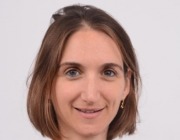Quantum computation and optimization
Quantum algorithms present promising potential for future technology. Despite the theoretical ability of a quantum computer to accomplish remarkable tasks, such as breaking RSA encryption in an ideal environment, practical limitations, particularly noise, significantly hinder their performance. Presently, they fall far short of surpassing classical computers in most relevant problems of interest. To address this challenge, a current forefront of research in quantum computation focuses on devising computational protocols that achieve a quantum advantage despite the presence of noise. This ongoing effort involves the development of both analytical and computational optimization methods.
Our group specializes in developing tools to comprehend and manage noise in open quantum systems. We use mathematical concepts like symmetry, degeneracy, and topology to discover robust protocols for controlling quantum systems in noisy environments. We explore situations where noise can be used to our advantage, especially near special degeneracies called exceptional points.
Research Interests:
- Adiabatic and non-adiabatic copmutation protocols with atoms and photons
- Exceptional points - singular points in the density of states open quantum systems
- Optimal control - a computational approach for finding optimal pulses for control of quantum systems
- Non-Hermitian quantum mechanics – a theoretical framework for studying open quantum systems
- Fundamental question in quantum optics


